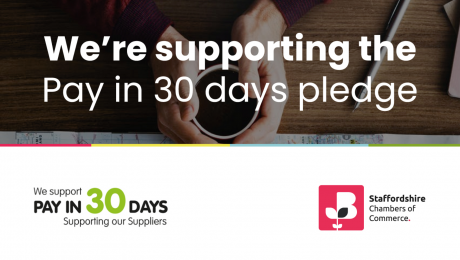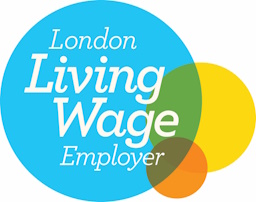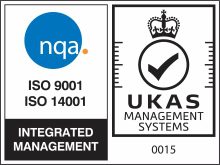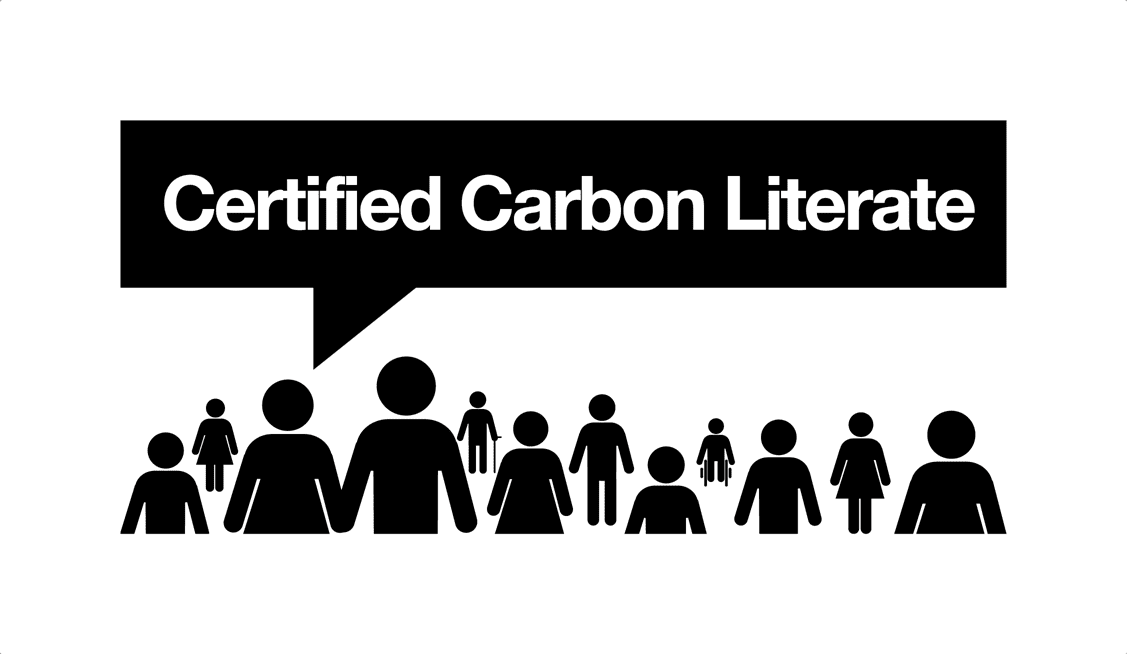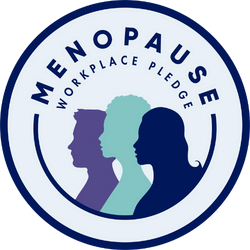Policy Spotlight: The Cost of Living and the low-carbon energy strategy
Last week, the Office of Gas and Electricity Markets (Ofgem) announced an increase of 54% in the price cap which will take effect from 1 April 2022. The increase means that people on default tariffs paying by direct debit will see a rise of £693 from £1,277 to £1,971 per year. Prepayment customers will see a rise of £708 from £1,309 to £2,017.
The price cap is put in place in order to stop energy companies from making excessive profits as well as ensuring that customers pay no more than a fair price for their energy. The increase is driven by a record rise in global gas prices over the last six months, especially as wholesale prices have quadrupled within the last year. In April, energy companies will be able to pass on these higher costs onto customers as they cannot afford to supply electricity and gas to customers for less than they have paid for it.
Sara Williams, CEO of Staffordshire Chambers of Commerce said: “The lack of support announced for businesses who will be struggling to keep up with the rising costs of energy prices, inflation and cost of raw materials is disappointing. Smaller firms don’t have the protections or financial support which has been provided to households, nor do they have the negotiating power of larger businesses.
“Businesses will be left with no choice but to pass these costs onto their customers in the form of price rises which will further fuel the cost-of-living crisis as well as drive surging inflationary pressure. Chambers across the network have urged the government to provide the necessary measures to support businesses which will, in turn, support the economic growth of the economy.”
It is now crucial that the government uses the Chancellors rebate and clawback scheme for small firms as well as delay the impending rise in national insurance in order to support businesses who are facing extreme pressure.
If you are facing any challenges due to the energy crisis or would like further information or advice, get in touch with rhouda.elalfy@staffordshirechambers.co.uk.
The government must now push its low-carbon energy strategy by supporting the economy on issues such as energy efficiency and securing suitable energy storage which will stabilize energy prices in the future. The strategy aims to reduce energy demand and prioritises choosing low carbon solutions in order to minimise the impacts of climate change and to reduce operating costs.
Reducing carbon emissions can often help businesses save time and money as well as help them to play their part in creating a greener and healthier world. Staffordshire Business and Environment Network (SBEN) have created a carbon tracker tool to help assist businesses with tracking and implementing actions to reduce carbon emissions. You can find out more by clicking here.
Businesses can now also apply to take part in SBENs Carbon Literacy Training by clicking here.
For further information on carbon literacy and creating a low-carbon energy strategy for your business, get in touch with alison.landon-gallimore@staffordshirechambers.co.uk.
- Published in News
Sara’s Blog: Levelling Up strategy announcement
Following on from the Conservative Government’s levelling up manifesto promise from 2019, the government have this week finally unveiled their plans.
The strategy, presented by Levelling Up Secretary, Michael Gove, will take until 2030 to deliver its objectives which include improving services such as education, broadband and transport. Mr Gove said it would “shift both money and power into the hands of working people”.
I spoke at a Levelling Up event hosted by The Institute for Government earlier this week, at which the main discussion was around how the private sector can get involved with this ambitious project. Government is, as we know, short of cash and will therefore, be looking to the private sector to support the agenda. As there is such an emphasis on social improvements, there was also an emphasis on the role of social investment in improving ‘left-behind’ areas.
You can watch a video of the event where I spoke alongside Kevin Hollinrake MP, Stephen Muer and John Wrathmell, below.
The Government has previously launched several schemes aimed at boosting regional development and Mr Gove’s plans would bring all existing initiatives together into 12 “national missions” and set up a system for measuring progress. Among the 12 missions are promises to refocus education spending on disadvantaged parts of the country and eliminate illiteracy and innumeracy; bring the rest of the country’s public transport closer to London standards, and provide access to 5G broadband for the “large majority” of households. Derelict urban sites in 20 towns and cities will be targeted for redevelopment intended to create more high-quality jobs. The first places to be selected for this development are Wolverhampton and Sheffield.
The 12 levelling up missions are:
• Increase pay, employment and productivity in all areas of the UK, with each one containing a “globally competitive city”
• Raise public investment in research and development outside the south-east of England by 40 percent
• Eliminate illiteracy and innumeracy by refocusing education spending on the most disadvantaged parts of the country
• Increase the number of people completing high quality skills training – in England, this will mean 200,000 more people a year
• Bring the rest of the country’s public transport “significantly closer” to London standards
• Provide access to gigabit-capable broadband nationwide by 2030 and 5G mobile data coverage for the “large majority” of households
• Create more first-time homebuyers in all areas, and reduce the number of “non-decent rented homes” by 50 percent
• Narrow the gap of healthy life expectancy between the areas where it is lowest and highest
• Improve “well-being” in every area of the UK
• Increase “pride of place”, such as people’s satisfaction with their town centre and engagement in local culture and community
• Reduce murder, manslaughter, serious violence and neighbourhood crime, especially in the worst-affected areas
• Give every part of England that wants it a devolution deal with more regional powers and simplified, long-term funding
The danger for areas such as Staffordshire is that we fall between major regional conurbations such as the West Midlands and Greater Manchester. It will take more than a few million pounds for example to make Staffordshire’s beleaguered public transport infrastructure ‘significantly closer’ to London standards although there is money promised to Stoke-on-Trent to do this. We will be working tirelessly to ensure that Staffordshire receives full advantage from the levelling up strategy. Working across all sectors with a coordinated approach and urging our MPs to ensure our voice is heard in Westminster and that government takes the necessary action to unlock private and social investment.
It is a time for us all to step up and show leadership to really make sure that Stoke-on-Trent and Staffordshire levels up and that others recognise our potential and that, in particular, businesses here have so much to offer in providing prosperity and opportunities for everyone here.
In the meantime, if you have any concerns or issues around the subject, please contact Rhouda Elalfy at the Chamber rhouda.elafy@staffordshirechambers.co.uk
If you want to talk to us about any business issues, including funding, you can call our switchboard on 01782 202222 or call the Stoke and Staffs Growth Hub Helpline on 0300 111 8002 or email: info@staffordshirechambers.co.uk
- Published in News, Uncategorized
Policy Spotlight with Rhouda: The Energy Crisis and Post-Brexit trade
As tensions continue to rise between Russia and Ukraine, there has been increased fears over Europe’s gas supply crisis becoming much worse. Russia is Europe’s largest supplier of gas, with one third flowing through Ukraine’s pipeline to countries across the continent, therefore, a Russian invasion of Ukraine would mean that there is a high chance of gas exports being cut.
The last few months have seen gas market prices increase significantly, surpassing record highs and threatening both domestic and business use. The rise in energy costs alongside the list of other pressures that businesses are currently facing has created fear amongst many firms.
In a letter to Rishi Sunak, the heads of CBI, the British Chambers of Commerce, the Institute of Directors, Make UK, and the Federation of Small Businesses said that the surge in domestic and business bills would negatively impact the economic recovery of the UK. All five businesses have demanded that the government act urgently and decisively in order to support consumers with their spiralling bills. It is essential that businesses are supported whilst managing their cashflow due to the increase in inflation and raw material cost.
Sara Williams, CEO of Staffordshire Chambers of Commerce said: “The pressures that firms are currently facing are insurmountable. Businesses need to be relieved of the overwhelming financial demands, especially as restrictions have now been removed. By securing a stable supply of energy and gas, businesses and consumers will be relieved of the increase in living costs that they are currently facing.
“The scale of this crisis is leaving firms with little protection as they deal with inflation, a surge in the cost of raw materials and tax increases. Many firms in the manufacturing and ceramics sectors have explained to us that they have little choice but to pass these cost increases onto their customers, which is adding further inflationary pressures.”
Staffordshire Chambers of Commerce is prioritizing supporting businesses towards decarbonising in order to achieve the government’s target of reaching net zero by 2050. Businesses can continue to compete in the global market by improving their environmental and social performance. Affordable and low-carbon energy options are crucial in order to support businesses in reducing their carbon footprint. In addition to this, cutting costs and carbon through improved energy practice can also support firms through the energy crisis.
Post-Brexit Trade:
The last six months have demonstrated that there are significantly lower EU imports to the UK compared to three years ago, with a smaller reduction in exports to the EU. The British Chambers of Commerce has reported that exporters are uniquely facing a wide range of issues, from unprecedented inflationary pressures as well as a global supply chain crisis and a range of new requirements following the EU trade deal.
23% of firms surveyed said that finding a businesses partner or distributor overseas would encourage them to start exporting or to export more. 16% of firms have explained that they require support with trade documentation would encourage them to increase the amount of business they do overseas.
The British Chambers of Commerce have released their new Trade Manifesto which aims to expand and diversify the number of exports from the UK across the world. You can find out more information by clicking here.
- Published in News
Sara’s Blog: Supporting the ‘Pay in 30 Days’ pledge and the end of ‘Plan B’ restrictions.
Cash flow is once again becoming the topic that we are talking about. There is concern that there is indebtedness in companies that took on Government loans and are now starting to have to pay back – and how this is affecting their ability to get other finance into their business. Supply chain issues mean that many smaller businesses are having to pay upfront and wait longer for goods – or are waiting to be paid, and some companies are changing their payment terms to be over 30 days (and we have heard of many facing 120 days!).
Indeed, recent surveys have suggested that at any one time £25 billion is owed by companies with payment terms over 30 days. With rising inflation and the cost of energy going up exponentially – and new NIC rules coming in – businesses are facing many financial pressures.
As an organisation at the heart of the business community, the issue of late payment is becoming increasingly important in these turbulent times. With all the factors listed already – and even issues being raised as we recover and grow out of the pandemic – prompt payment of suppliers has never been more crucial.
I have run my own business in the past so I fully appreciate the stress and anxiety that late payment can cause.
In April 2020 a project entitled The State of Small Business Cash Flow focused on cash flow experiences of self-employed workers and small business owners. Their research revealed that one in seven small business owners have been left unable to pay employees because of cash flow issues. This equates to a huge 2.2 million people in the UK not being paid on time.
Late payments can be detrimental to business growth, especially to micro and small businesses who are the lifeblood of local economies and larger supply chains. Firms having to wait 60 days and longer is no longer acceptable. A small business awaiting a large payment could go out of business before the invoice was paid and because the invoice isn’t paid.
Businesses working together to help stop late payments can greatly improve the economy. It will also engender better business ethics and more profitable businesses so we can all benefit. So, we have signed up to the ‘Pay in 30-Days’ pledge and hope that more businesses will do so too. We think it is of vital importance to the business community and I hope all businesses and organisations in Staffordshire will join the Chambers in supporting this initiative to help keep payments to a timely manner.
You can sign the pledge and receive a folder of digital assets, here.
And if you want more information, please contact our new Finance Advisor, Pam Wallis, who will be joining the Chambers’ Growth Hub team from February.
I am sure that I reflect many people’s relief that Plan B has been lifted and I am really pleased that we can welcome our members back to the Members Lounge – without having to book!
It was fantastic to see the car park full and the rooms stuffed with (careful) people at the event yesterday with Cllr Abi Brown, Matt Hadlington and Victoria Roberts from HS2, and Chris Wheeler from Auditel talking about the economy and future trends that will affect Staffordshire businesses.
The end of work from home guidance has been welcomed by businesses, particularly those based in city and town centres which rely on footfall from office workers. The removal of the requirement for vaccine passports will also be positive for the events sector and night-time economy. However, with infection rates still high, many firms are still experiencing significant staff absences and will be cautious about teams rushing back to the office when that could result in further absences.
Maintenance of testing capacity must also be a priority for Government, with reports of firms unable to access rapid testing at times when they need it. This supply must remain consistent to maintain consumer confidence and avoid unnecessary absences.
If you want to talk to us about any business issues, including funding, you can call our switchboard on 01782 202222 or call the Stoke and Staffs Growth Hub Helpline on 0300 111 8002 or email: info@staffordshirechambers.co.uk
- Published in News
Policy Spotlight: The end of Plan B Restrictions and Levelling-Up Prospectus Revealed
Last week, Prime Minister Boris Johnson announced that from Thursday 27 January, England was reverting to “Plan A” due to the success of booster vaccinations and how well people had followed Plan B measures.
The removal of Plan B restrictions means that the government has dropped its advice for people to work from home as well as ended the mandatory requirement to wear face masks in public places.
This announcement will come as a relief to many firms across the UK who have been unable to maintain normal operations with staff working from home. It is also anticipated that news of the easing of restrictions will encourage more people to go out again, ultimately supporting businesses in the retail and hospitality sectors.
Despite this news, it will come as no surprise that many firms have adjusted to the new working conditions with staff working from home or establishing a hybrid working system. Arguably a new normal has been created due to the pandemic with most firms offering remote working options for staff members regardless of whether restrictions are in place or not.
Sara Williams, CEO of Staffordshire Chambers of Commerce, said: “The Prime Ministers’ announcement has indicated a light at the end of the tunnel for many firms across the nation. However, it is now more important than ever that businesses remain vigilant and play their part in containing the spread of the virus. The last two years have shown us repeatedly how unpredictable the virus is, causing the situation to change drastically with very little notice.
“We would urge businesses to continue to maintain safety measures around the workplace as well as encourage staff to take lateral flow tests regularly and to allow staff members to work remotely whenever possible.”
It is essential that the government continues to support businesses through this period in order to help sustain the UK’s economic recovery as well as contain the spread of the variant. Measures should include reintroducing free testing kits for businesses and implementing enhanced financial support for businesses impacted by Covid-19 as well as maintaining the VAT reduction beyond March 2022 in order to help support firms in the hospitality and retail sectors.
As the government moves towards a more hopeful long-term strategy, it is crucial that businesses are provided with the right kind of support allowing them to aid in the UK’s return to economic prosperity.
Stoke-on-Trent City Council Reveal Levelling-Up Prospectus
In other promising news, Stoke-on-Trent City Council has revealed its Levelling-up Prospectus, which is the city’s biggest investment prospectus to date. After securing £56m in Levelling Up funding in October, the prospectus highlights multiple key investment and development opportunities which are available in the city.
The upcoming infrastructure projects are expected to unleash Stoke-on-Trent’s full economic potential bringing in potential investors and developers from across the globe.
The city’s major projects include the Etruscan Square development into a leisure-led, mixed-use regeneration site, The Goods Yard, creating a vibrant micro-neighbourhood and Etruria Valley Link Road.
You can find out more about the Levelling-Up Prospectus in our Local Economy Round-table Rotation Session on Thursday.
If you require any business support or advice, get in touch with Staffordshire Chambers of commerce on 01782 202222 or email info@staffordshirechambers.co.uk.
- Published in News
Sara’s Blog: Saving the World – starting from Staffordshire!
There is a lot of talk now of climate change, wellbeing, and mental health as strategic imperatives for business. And, as you would expect, we are committed to supporting local businesses to achieve and deliver this. We believe that the United Nations Sustainable Development Goals (SDGs) – as many others do – are the basis and foundation for building this strategy and seeing, monitoring, and reporting on, the difference that your business can make.
The SDGs are 17 interlinked global goals designed to be a blueprint to achieve a more sustainable future for all. In 2020, the UN named the next ten-year periods as the ‘Decade of Action’ – with the goals intended to be achieved by 2030. This links to the scientific targets for climate change too, hence the recurrence of the date – which is only 8 years away…….
Staffordshire Chambers signed a commitment to the UN Global Compact at the instigation of our patrons and our board. We realised that the UN SDGs 17 goals, established by governments, civil society and business, provide a framework to save the planet and make the world a better and more sustainable place.
The Board and Council felt that this was something the Chamber should lead on, and I am proud to say that we have done an enormous amount of work internally to develop our own views about the SDGs and how we can use them as a business development tool.
We are now keen to share this with all Staffordshire businesses and highlight what Chamber Members are doing too – and so over the next year, each month, we will be highlighting one or two SDGs with focussed events, blogs, and engagement with business.
We hope that at the end of this programme we will have a set of tools, activities, a documented resource, and videos that businesses across Staffordshire will be able to use to highlight how they are contributing to the SDGs and how they want to work towards doing more to maximise their impact for people, profit, and planet. This is part of our commitment to you as part of SDG17 – Partnerships for the goals.
The UN SDGs encompass 17 clear topics on which businesses can build a strong business case and it is the Chambers belief that they are important because they will enable businesses to attract talent, attract investment and importantly will become what customers and suppliers expect from go-ahead and dynamic businesses.
The 17 SDGs are:
1. No hunger
2. Zero hunger
3. Good health and wellbeing
4. Quality education
5. Gender equality
6. Clean water and sanitation
7. Affordable and clean energy
8. Decent work and economic growth
9. Industry, innovation, and infrastructure
10. Reduced inequalities
11. Sustainable cities and communities
12. Responsible consumption and production
13. Climate action
14. Life below water
15. Life on land
16. Peace, justice, and strong institutions
17. Partnership for the goals
The Chambers’ SDG calendar for 2022 is:
January – SDG 17
February – SDGs 16 & 2
March – SDGs 10 & 5
April – SDG 13
May – SDGs 1 &3
June – SDG 12
July – SDGs 7 & 11
August – SDGs 6 & 14
September – SDG 4
October – SDG 8
November – SDGs 5, 3 & 15
December – SDG 9
I know that many businesses are already working toward the SDGs, and the programme will also help businesses to start and develop their journey to become effective in delivering the sustainable development goals as business objectives.
We will be publicising our SDGs programme through our usual channels and have a dedicated resource on our website. To offer to tell us what you are doing and contribute to the debate or to find out more email: sdg@staffordshirechambers.co.uk
You can view the UN SDG website here. We encourage as many businesses as possible to sign up to the UN Global Compact – specifically designed for businesses.
If you want to talk to us about any business issues, including funding, you can call our switchboard on 01782 202222 or call the Stoke and Staffs Growth Hub Helpline on 0300 111 8002 or email: info@staffordshirechambers.co.uk
- Published in News
Policy Spotlight with Rhouda: The easing of testing rules for travellers to England
The last few weeks of 2021 saw great uncertainty amongst the British public as Omicron cases surged and further restrictions were being considered. Businesses on the road to recovery faced fears of being closed down again as well as increased staff shortages. Chambers across the network were joined by their members to urge the government to provide financial support and clarification of likely upcoming changes in business operation.
One of the most impacted sectors throughout the pandemic has been the travel industry, as testing rules constantly change people fear travelling and spending extra money on multiple PCR tests.
Last week, Prime Minister Boris Johnson announced a change in testing regulations which is expected to help boost the travel industry. The easing of rules for people travelling to England will make it easier for people to book holidays and will ultimately reduce the costs of travelling. The changes implemented will mean that people travelling to England will no longer have to take a test two days before travelling from countries outside of the UK and the Common Travel Area. Travellers arriving to the UK will only be required to take a lateral flow test instead of a PCR test on day two of being in the UK. This however will need to be a private test, rather than a free NHS test.
Passengers who are unvaccinated must still take a pre-departure PCR test, PCR test on day two and day eight, as well as self-isolation for 10 days.
Sara Williams, CEO of Staffordshire Chambers of Commerce, said: “The latest government announcement is promising news for many firms in the travel industry and should act as a timely boost after r a period of great uncertainty. The extortionate cost of travelling was suppressing customer demand and preventing a full recovery in the sector.
“Whilst the Chambers recognises the importance of controlling and minimising the spread of the virus, recent evidence has suggested that, despite the rapid spread of the variant, hospital cases are much lower than they were at the start of the pandemic. It is essential that cases continue to be monitored and appropriate restrictions are put in place when needed.”
As spring approaches, it is essential that the government sets out a strategy that will allow us to prepare for any further changes or limitations placed on business operations.
It’s pleasing to see that all eligible businesses in the hospitality, leisure and accommodation sectors are now able to apply for funding from the government’s multimillion-pound support package from their local councils.
As the spread of the Omicron variant continues to increase across the UK consumer confidence has taken a massive hit as a result of the restrictions introduced as part of plan B. Therefore, it is essential that the rollout of the funding takes place as quickly as possible to the businesses that need it the most. We urge all firms to apply in the coming weeks and to make the most of the grants and support that is available to them.
If you require any business support or advice, get in touch with Staffordshire Chambers of commerce on 01782 202222 or email info@staffordshirechambers.co.uk.
- Published in News
Sara’s Blog: Chamber events and BCC Quarterly Economic Survey results
Happy New Year!
I hope you all had a chance to relax with those people most important to you and to recharge ready for the fresh challenges and opportunities in the coming year. 2022 begins with uncertainty as we struggle with increasing rates of Omicron virus infection and Government guidance is urging us to work from home as we deal with schools reopening and the aftereffects on infection of socialising and gatherings over the festive period.
At least we are all used to it now and although many want to return to the workplace as soon as possible, the PM’s stance seems to be that we will carry on with Plan B and ride out the current wave of infection with no further curbs.
I am pleased to say that its business as usual from the Chambers with our usual level of support and services. We will obviously adapt our events programme to reflect the risk of infection and maintain a full programme of networking, seminars, meetings either online or face-to-face when and where possible.
There is something on offer for everyone, including business support, networking, forums, exclusive experience days and more. Whether you want to make new contacts via networking or sharpen your business acumen, take a look at the events calendar for the next three months, here.
Sobering news this week as the British Chamber of Commerce (BCC) Quarterly Economic Survey (QES) – the UK’s largest independent survey of business sentiment and a leading indicator of UK GDP growth – has shown the recovery stalled in the fourth quarter, with firms facing unprecedented inflationary pressures.
The survey of almost 5,500 firms showed that some indicators also revealed a continued stagnation in the proportion of firms reporting improved cashflow and increased investment. Inflation is the top issue for firms, while a rise in the interest rate was also a cause for concern for many.
The number of respondents reporting increased domestic sales was down slightly from 47 percent in Q3 to 45 percent. 16 percent reported a decrease, unchanged from Q3.
58 percent of firms expect their prices to increase in the next three months, due to inflationary pressures, the highest on record. Firms cited rises in the price of raw materials, pay settlements, finance costs and other overheads as factors leading to increased prices.
When asked what was more of a concern to their business than three months ago, 66 percent of firms cited inflation (compared to 52 percent in Q3 and 25 percent in Q4 2020), again the highest on record. For production and manufacturing firms, this rises to 75 percent. There are also growing concerns about cashflow, indebtedness and how all of these pressures can be passed onto customers and consumers, whilst energy and cost of living rises hit us all.
The survey goes on to cite concerns over interest rates rising, no recovery in cash flow and lack of investment. A challenging picture for the UK economy as we start 2022. Many businesses were facing a struggle to improve their cashflow and raise investment even before the Omicron variant surged and Plan B was imposed.
Supply chain disruption is continuing to persist, inflation is soaring, and rising energy costs are presenting firms with a huge headache. With companies now having to grapple with the impact of Omicron and further changes to the rules on imports and exports of goods to the EU, there are significant hurdles for businesses in the months ahead.
The Government has listened to our previous calls for support and it must do all it can to steady the ship and steer the economy through these uncertain times. If the current restrictions persist or are tightened further then a more comprehensive support package that matches the scale of any new measures, will need to be put in place.
The focus must be on creating the best possible environment for businesses to grow and thrive. By supporting firms, they can begin to generate wealth, create jobs, and support communities. That is by far the best way to sustainably deliver the tax revenue that the government needs to support public services and the wider economy. You can view the full article here.
If you want to talk to us about any business issues, including funding, you can call our switchboard on 01782 202222 or call the Stoke and Staffs Growth Hub Helpline on 0300 111 8002 or email: info@staffordshirechambers.co.uk
- Published in News
Sara’s Blog: 2021 and all that…
I remember so many people this time last year saying that they would be glad to see the back of 2020. It had been an awful year, and totally unexpected as the champagne corks popped at the start of the year.
No one would have predicted that twelve months on we would be facing rising infection rates, confusion over measures to control the spread of a new variant of the virus and a government seemingly unable to make decisions on how far to go with imposing restrictions, causing anxiety and uncertainty to business and the wider economy.
Of course, we have most of the population vaccinated and booster vaccination numbers of close to a million a day should ensure we are achieving the target of giving greater protection to everyone that wants it by the end of December.
However, there is no confirmation from the Treasury that comprehensive financial support measures will again be rolled out to business. The hospitality and retail sectors are already taking a hit as people err on the side of caution, Christmas parties are cancelled, and many stay away from the high street.
Throughout the pandemic the Chamber movement has driven the Government hard on clarity over support measures and by and large, measures up to the Autumn of 2021 have saved businesses from going under whilst protecting millions of jobs and the self-employed.
Putting business first, protecting jobs and growing our economy is the priority of Staffordshire Chambers and we will again be adding our support to the lobbying activity of the British Chambers of Commerce (BCC) to ensure the Government does everything possible to support business.
Being an eternal optimist, I always believe great things happen in times of adversity and looking back, 2021 has contained much to make us all very proud.
Many businesses and individuals have again demonstrated resilience, innovation, and generosity in getting on with the job, adapting to changing market conditions and finding the time to provide support to other businesses and their community.
Our business helpline has never been busier with over 10,000 calls throughout the year, helping with enquiries on many issues including finance, employment issues, skills, marketing, and exporting.
We have delivered a programme of almost 300 events including webinars, sector specific forums, and networking events.
In the last quarter we were able to stage our Business Festival, with a mix of online and live events, the Let’s Do Business Exhibition and our annual Staffordshire Business Awards, both at Uttoxeter Racecourse.
In November we welcomed our new Staffordshire Chambers President, Kate Beardmore. Kate is the second female Chamber President and at 33, the youngest ever. I’m as excited about working with Kate in the next two years as she is about working with everyone in the wider Chambers community.
Kate has so much business ability, enthusiasm and a great sense of humour and she will be attending lots of events so she can meet members and get your views on what we can do to make Staffordshire better and stronger together.
Kate will be ably assisted by Martin Lennon and Rachel Buxton, the new Presidents for Stafford, and Staffordshire Moorlands.
The highlight of my year, and probably my career was Staffordshire Chambers winning ‘Chamber of the Year’ at the Business Awards, hosted by the British Chambers of Commerce earlier this month.
I have already spoken at length about this at length (see my blog of 10th December) and we certainly won’t be slowing down to bask in the glory.
I am expecting that the first couple of months of 2022 will be as confused and difficult to navigate as the last few weeks have been too. So please do everything to keep you and your families safe.
We will be closing at 5pm on 23rd December and will reopen on 4th January 2022.
I wish you all a Merry Christmas and a happy, healthy, and prosperous New Year.
If you want to talk to us about any business issues, including funding, you can call our switchboard on 01782 202222 or call the Stoke and Staffs Growth Hub Helpline on 0300 111 8002 or email: info@staffordshirechambers.co.uk
- Published in News, Uncategorized
Policy Spotlight with Rhouda: Analysis of UK economy growth
According to the British Chambers of Commerce’s latest economic forecast, the UK’s economy is expected to grow at a slower pace and trade is set to lag significantly behind the wider recovery. The expectations for UK GDP growth have dropped from 7.1% to 6.8%.
GDP growth in Quarter 3 was recorded at 1.3%, however there were expectations for GDP growth in quarter 4 to slow down to 0.5% due to staff shortages, supply chain disruption and rising inflation. The increasing concern over the fast spread of the Omicron variant has also impacted GDP growth throughout this quarter.
Sara Williams, CEO of Staffordshire Chambers of Commerce, said: “BCC’s latest economic forecast has demonstrated the struggles that businesses have endured throughout this last quarter in 2021. Staff shortages and supply chain disruptions have already affected the way that firms have been able to operate but with the additional fears over the Omicron Variant public behaviour has completely changed and this has put firms under even greater pressure.
“The last weekend before Christmas is notoriously known for heavy footfall across all retail and hospitality sectors, yet this weekend large numbers of consumers opted to isolate at home ahead of the holiday. The number of people on high streets fell by 5.9% on Sunday and this is likely to have a huge impact on these firms, majority of which were counting on the week before Christmas to bring up their sales.”
It is clear that the spread of the new Covid-19 Variant has greatly hit customer confidence and despite an official lockdown not yet being announced, customers fear being kept away from loved ones this year and have decided to cancel many upcoming outings.
Firms in the hospitality sector have asked the government for an extension on the discounted VAT rate as well as for business rates which were due in the first quarter of 2022 to be deferred. Chambers across the network urge the government to listen to businesses in sectors that are most affected by the restrictions. It is essential that the right support is offered to businesses as this will help the UK get through a challenging winter without serious damage to our economic recovery.
If you require any business support or advice, get in touch with Staffordshire Chambers of commerce on 01782 202222 or email info@staffordshirechambers.co.uk.
- Published in News

